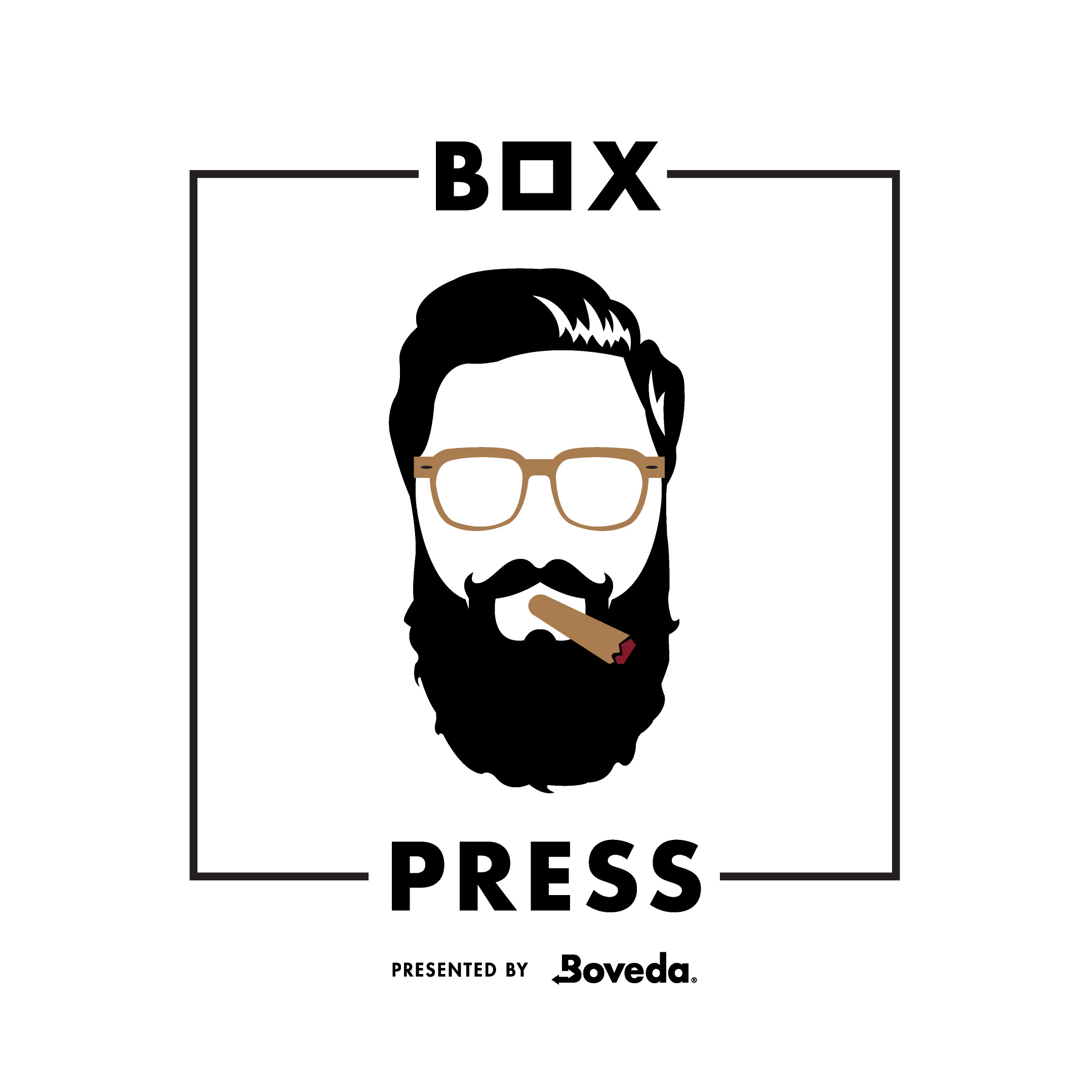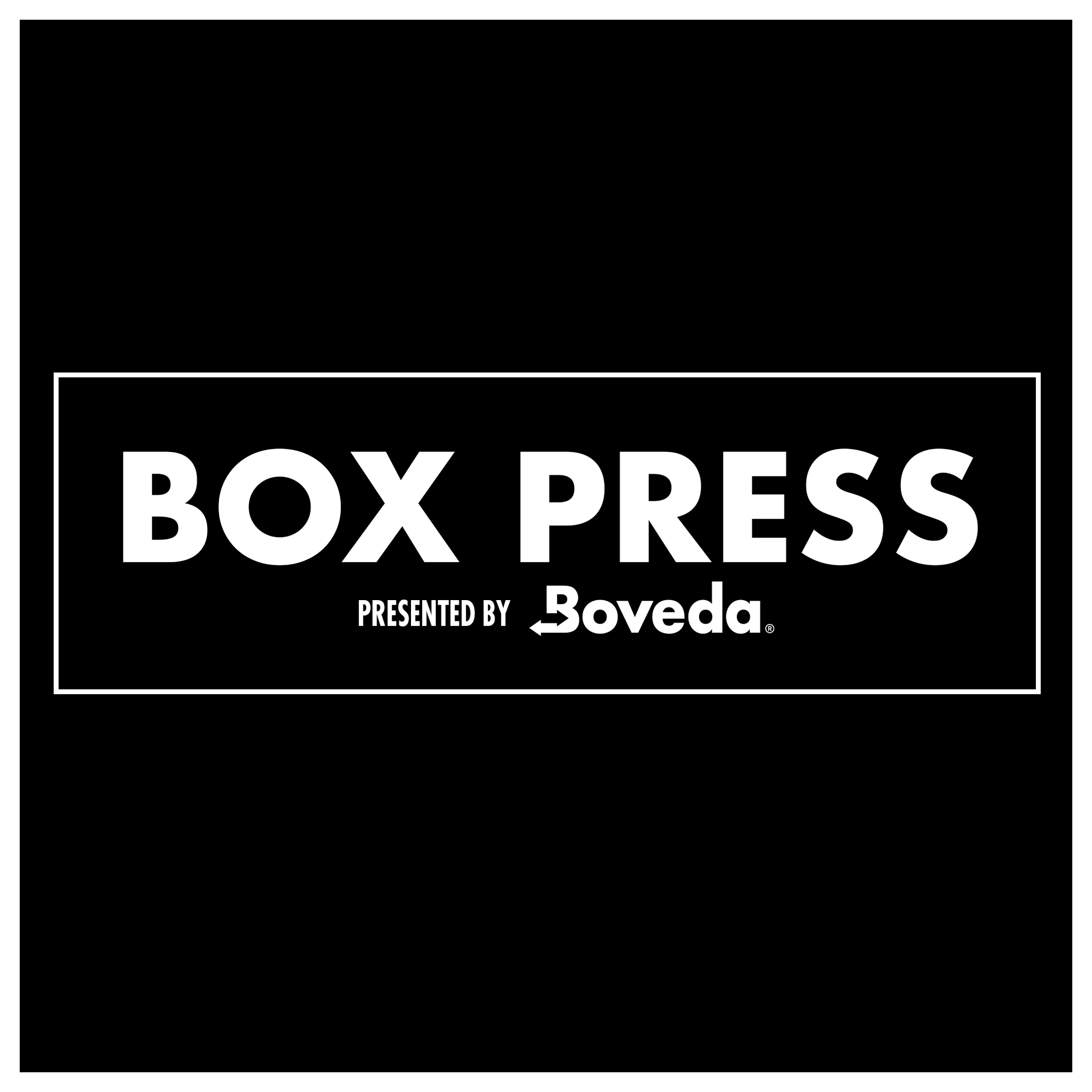Episode 75
What Are You Tasting in a Cigar? | Box Press Shorts Ep. 75
Cigar smokers wanna know what the best cigar flavors are. Even if you smoke the #1 cigar, you might never experience its full flavor if you smoke a cigar too fast, judge a cigar when you first light it or try to set the record for the biggest ash.
You might be surprised to hear the way you smoke cigars may impact their flavors. Correct these 3 mistakes cigar smokers make and your next cigar might taste a whole lot better.
Pro Cigar Tip: a well-humidified cigar always tastes better. Store cigars with Boveda in a humidor to get the best flavor out of every cigar.
Guest: Altadis Cigars’ National Education Manager, Travis Pappenheim
Boveda Box Hosts: Rob Gagner and Nate Beck
Website: https://www.bovedainc.com/
Facebook: https://www.facebook.com/bovedausa/
Twitter: https://www.twitter.com/bovedainc
Instagram: https://www.instagram.com/bovedainc/
00:00 Cold open
02:19 Are you puffing on a cigar too fast?
02:40 Does tobacco really have flavors?
03:51 How long should you hold cigar smoke in your mouth?
03:57 What it means if the ember of a cigar is this color
04:07 Why a big cigar ash is bad (Our apologies to Sir Mixalot!)
04:25 How to correctly draw on a cigar
06:09 Are you smoking a bad cigar? (How long until a cigar's flavor kicks in.)
07:24 Where’s the most flavor in a cigar—what a lit cigar is trying to tell you.
Boveda are 2-way humidity packs you put in a humidor to preserve cigars. If you store cigars in a wood humidor, have you seasoned your humidor lately? The easy way to season a wood humidor is using the Boveda Humidor Starter Kits.
Check out the easy-to-use kits here: https://store.bovedainc.com/collections/boveda-for-tobacco/starter-kit
How many Boveda do I need for a humidor? Find out here: https://boveda-humidor-calculator.bovedainc.com/
Transcript
Welcome to another episode of Box Press. I'm your host, Rob Gagner. I'm
Speaker:joined by co-host, Nate Beck.
Speaker:And we have a special guest, Travis Pappenheim
Speaker:from Altadis Cigars. Travis, thank
Speaker:you for joining us. Thank you for being here. I'm gonna have
Speaker:a great time learning a little bit more about tasting sewers. Exactly.
Speaker:We did a video about tasting cigars a few years ago. And it
Speaker:did really well for us. There was a lot of Education you pulled in
Speaker:there and now we want to just pull it a little bit deeper
Speaker:into the education profile because this is
Speaker:something Nate and I always go back and forth with Nate can
Speaker:taste cigars really? Well. I can't I need
Speaker:help. So now we're gonna do some little stuff
Speaker:like we're gonna test some stuff and see
Speaker:if we can get better at this right. I think yeah call it a
Speaker:sensory experience a little bit. Yeah, and I would
Speaker:say like and we were talking last night like
Speaker:If you just enjoy the cigar and it's good and it's
Speaker:balanced like I look for balance. I look for complexity sometimes
Speaker:like if I want some different flavors or sometimes I
Speaker:just want
Speaker:Consistent good flavor, and then that's it.
Speaker:Like that's as far as I go and that's Travis that
Speaker:was interesting last night to hear you say that that's what the blenders are doing.
Speaker:Yeah, a lot of blenders in the industry. They we don't
Speaker:get flavor notes. We don't. They don't designing a cigar
Speaker:based off of what flavor notes are we trying to
Speaker:achieve? You can't impart flavors. It's really the
Speaker:oils as a smoke draws over those oils as
Speaker:the oils expand, those oils are gonna leave a little residue as
Speaker:it goes through and hits your palate and that's what we're picking up. Let's talk
Speaker:about that because most people don't know that. So when
Speaker:you actually burn a cigar,
Speaker:you're actually smoking literally the
Speaker:oils and sugars behind the burn line. You're heating
Speaker:them up.
Speaker:And that's being drawn into your
Speaker:palate and that's what creates the flavor. Right.
Speaker:The tobacco is really just
Speaker:the fuel at the embered end. The smoke
Speaker:that's being drawn over is drawing over those oils,
Speaker:picking up a little bit of those flavors as it goes
Speaker:through, or the oil residue with those oils consist
Speaker:of--
Speaker:the elements... Right. ...that were involved with making those oils. It's then
Speaker:depositing them on your on your palate, as
Speaker:you're holding that smoke in your mouth. That's why, um, the first video we did
Speaker:I said, let's--we really want to hold that in
Speaker:your palate for about five seconds, putting pressure, blowing
Speaker:your cheeks out. It helps embed a little
Speaker:bit of those oil residues that are coming through and they're embedding
Speaker:in your palate. And really, that's all it is.
Speaker:Tobacco is the fuel but you want the oils that comes with it.
Speaker:Right. The sugars help you get that color and depth you want. That's so
Speaker:important. that holding. Because I see some people smoke cigars. They
Speaker:just inhale and then blow it right back out real quick.
Speaker:I'm like, how can you taste anything? I'm not judging.
Speaker:I'm just, for me, it's really hard to taste
Speaker:at a high level. So I really have
Speaker:to think about it. Or I really have to hold it. Like, and just those
Speaker:simple tips of just like, hold that for extra couple
Speaker:seconds, and then slowly blow it
Speaker:out. Yeah, you want to get--remember cigars, we aren't
Speaker:in a hurry with cigars. No. It's taking us over
Speaker:three years--at a minimum--from seed to finished product
Speaker:to create a cigar. Right.
Speaker:Why are we rushing to get through it? And that's the one of the biggest
Speaker:mistakes I see with
Speaker:people who are getting into cigars, who've not
Speaker:been guided by somebody, like we did back in the '70s
Speaker:or '80s, or even before that, you know, back in the old days.
Speaker:Grandpa, dad helped Junior, you know
Speaker:that you helped each other.
Speaker:Slow down. Do this. Look, and there's proper things you can do to
Speaker:give you that better experience, right? Because cigars are just a luxury
Speaker:item. A hobby. Yep. That we
Speaker:get to enjoy with our friends. Yep. Why not take that time to enjoy that?
Speaker:Well, one thing I see a lot of people doing is inhaling too
Speaker:fast. Or you know, drawing that, not really inhaling, but
Speaker:drawing that smoke in your mouth.
Speaker:Way too fast.
Speaker:Remember, the idea is to keep that ember as cool
Speaker:as possible.
Speaker:And only keeping a quarter of an inch
Speaker:of ash. Maybe a half of an inch at the most. Yeah. Don't want
Speaker:that oxygen getting through that ash, because now you're picking
Speaker:up bad impurities--whatever is in the ash that's left over. Exactly.
Speaker:Combusting that and then creating that slight off-flavor
Speaker:but still an off-flavor. Absolutely. So ash those
Speaker:off. No, but if you draw it--when I tell
Speaker:a lot of people--if you want to think of it this way--do a slow count
Speaker:of three when you draw the smoke into your mouth. That's such a good tip because that's where
Speaker:it changed for me and how I tasted a cigar.
Speaker:It was two things.
Speaker:Slow, long draw.
Speaker:And not the puff, puff, puff, which we'll do in a totally different video
Speaker:of how to smoke a cigar. We're doing that today with Travis. But the second
Speaker:one was, in between, letting the
Speaker:cigar rest and cool down. Because some of the times
Speaker:the best flavors I get out of a cigar when
Speaker:I forgot about it. I'm like, oh, yeah, I got to pick that up and smoke it
Speaker:and I'm like, holy cow that tastes amazing! Because it's
Speaker:cooler and like even to just touch down here by the
Speaker:end--if it's just warm, you're
Speaker:perfect. But if it's blazing hot
Speaker:and you can't touch that, you're, you're ripping it too hard.
Speaker:And you're burning off... Too big of a hurry at that point, right? Well, I mean I
Speaker:can hold this for a while. This is not too hot. Yeah. And it's just
Speaker:perfect. You're burning off all the oils and sugars... Absolutely. ...before they even get to
Speaker:your mouth. Right? I mean, that's what I think is happening in
Speaker:theory is like it's just too hot and it's like POOF, an incinerator. You're
Speaker:singeing them. You're singeing that tobacco
Speaker:so hot that oils the oils are really... That's a good way to say it. ...I like
Speaker:to say, it's like when we cook a steak. There's a
Speaker:time and an opportunity that
Speaker:you want to sear your steak at a really high temperature. Say 800-900
Speaker:degrees. But if I'm gonna cook a steak to
Speaker:a medium-rare or a medium, and I don't have an oven.
Speaker:I'm not gonna cook a steak at 800 degrees, because it's gonna
Speaker:cook way too fast in the outside. Right. Burn the peanuts out
Speaker:of the oils or the fats that are there. Yep. And those
Speaker:fats are not gonna be very good, because they're gonna be so singed. You don't
Speaker:want to do that to the oils on the tobacco. You want to let them
Speaker:slowly heat up, draw that smoke over it, and not sing it.
Speaker:Yep. And burn it. Yep. Yeah, like right now at this point,
Speaker:we're not very far into our cigars. This is to me, sometimes the
Speaker:worst part of the cigar. It's usually sometimes
Speaker:the most bitter part. There's not a lot of complexity of
Speaker:the flavor.
Speaker:Just it's like this period that you have to get through but
Speaker:you even say, Travis, that at a quarter of
Speaker:an inch, that's when you really should start tasting things. Like that's
Speaker:when the oils are starting to heat up and start to go, "Oh, we're
Speaker:doing something here. You want to release us!"
Speaker:Well, you don't go to a concert and sit there
Speaker:and listen to the percussionist and the bass,
Speaker:the bass guitarist.
Speaker:That's not them. That's not the band.
Speaker:You gotta wait for the lead guitar. You gotta wait for the other accessories that
Speaker:go with the full band. Well, when we're smoking a
Speaker:cigar and you just light it up, remember the tobacco leaf on the
Speaker:outside, the wrapper and consequently, the binder, are probably
Speaker:the two thinnest leaves in the whole cigar. Those ones
Speaker:that are gonna ignite right away. The thicker tobaccos do
Speaker:take more time to heat those oils up. Let them naturally
Speaker:just start to warm up. So, if you get about that, an eighth of an inch,
Speaker:a quarter of an inch in, a 16th of an inch, it
Speaker:depends on each cigar. You know, the thicker tobaccos, you're
Speaker:gonna have to get into them a little bit more. But like you mentioned, you can
Speaker:you can feel just right down here. Once you feel that these start
Speaker:to get a little warm, you know that the oils are going to expand. Yeah,
Speaker:mine's just starting to get warm to the
Speaker:touch. Like earlier, it was like cold. For me
Speaker:It's yes, if you look at your cigar, like right in here,
Speaker:you'll notice that it starts to bellow just a little
Speaker:bit. I was just noticing that. When you just fire your cigar up, that
Speaker:hasn't had time for the water content. That moisture. Yeah that water
Speaker:concentration. It doesn't have a way
Speaker:to
Speaker:get out because of the capped end. It's burning and you
Speaker:only draw on it every 45 seconds to a minute and
Speaker:a half, two minutes, depending on your location.
Speaker:When I see that bellowing, starting to bellow out,
Speaker:that means I know that water is starting to expand, that means the
Speaker:oils are gonna start to expand, they kind of go hand in hand. Sure. So
Speaker:there are times, I'm just like, okay, they're bellowing, now it's time to,
Speaker:let's see what the flavor is. It's a little indicator to you. Like a little bulb,
Speaker:just a little



